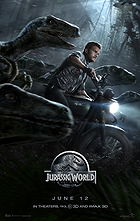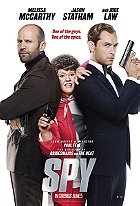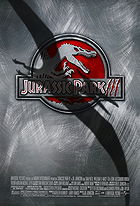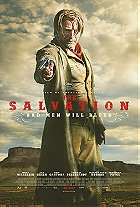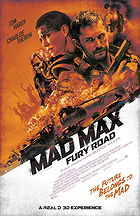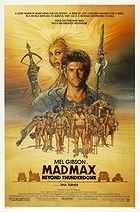There is only one true Terminator movie in this reviewer's eyes, and it was released in 1984 as The Terminator. Although 1991's Terminator 2: Judgment Day was an entertaining follow-up, it lacked the pitch-black tone of its predecessor and created holes in the franchise's mythology. 2003's Terminator 3: Rise of the Machines is another instalment that falls short of the motion picture which spawned it, but it's noticeably better than its shonky reputation implies. Without the participation of series mastermind James Cameron, the outlook for Terminator 3 was never overwhelmingly promising, but it surprises by being a genuinely entertaining action flick that plays out like a B-movie executed with A-grade production value.

Set roughly a decade after the events of T2, John Connor (Nick Stahl) has become a reclusive drifter, living off the grid to prevent the possibility of more Terminators finding him. 1997 has come and gone, with the predestined Judgment Day never having come to fruition. However, the computer system known as SkyNet has not given up on Connor yet, sending an advanced Terminator known as the Terminatrix, or T-X (Kristanna Loken), back in time to assassinate the future leader of the human resistance, as well as several of his lieutenants, including future bride Kate Brewster (Claire Danes). Once again, though, a T-101 Terminator (Arnold Schwarzenegger) is reprogrammed and sent back in time to serve as a protector for John and Kate. The T-101 explains that Judgment Day was only postponed, and the day of the Armageddon has at long last arrived. Although it's the Terminator's job to ensure the pair reach safety before the bombs are launched, John and Kate become determined to change destiny, convincing their cyborg protector to help them stop Judgment Day for good.
Written by John D. Brancato and Michael Ferris (The Net, The Game), Terminator 3 adheres to the basic narrative structure of the previous films, with new director Jonathan Mostow (U-571) using the well-worn narrative framework to connect a series of impressive action sequences. Thinking too deeply into the mythology behind Terminator 3 would be foolish. It was enough of a stretch for Terminator 2 to involve time travel after Kyle Reese stated in the first movie that the time displacement equipment had been destroyed, and it's equally dumbfounding here. It also begs the question once again: why would SkyNet stop sending Terminators back in time to kill John Connor? Why not send back hundreds of cyborgs? Such questions about paradoxes and so on in time-travelling adventures really make one's head hurt. Furthermore, T3 lacks heart, which is an element that Cameron introduced in the previous two movies. Thus, while Terminator 3 is exciting, it's not especially moving or powerful, and consequently the blockbuster never rises above its action roots to become something more transcendental.

Terminator 2 was softer compared to its brutally R-rated forerunner, and though T3 also carries an R rating, it does essentially feel like a glorified PG-13 (it's rated 12 in the UK). The movie is ultimately fairly sanitised, and while there are a few notably violent moments and some strong language, it lacks the visceral punch that was most notably evident in the original Terminator. Nevertheless, the technical execution of Terminator 3 is something to behold, with the reported $187 million price tag being put to good use. Surprisingly, although there is a fair amount of CGI here, Mostow and his crew do rely a lot on practical effects, with plenty of gigantic sets, some impressive make-up, and even a group of robo-tanks which were all executed practically. One of the centrepieces is an extended chase through the streets of Los Angeles (for which an entire street was constructed for shooting) that results in a lot of carnage and destruction. The action scenes are competent under Mostow's direction, which is a big plus considering the silliness of the entire enterprise. T3 also possesses a good sense of humour to prevent it from feeling like a drab remake of the previous movies. Not all of the jokes are funny (Arnie's gay pink sunnies...), but for the most part, Terminator 3 gels.
Schwarzenegger reportedly received a fair chunk of change to reprise his iconic role here, and it was a wise choice to bring back the veteran actor. Despite the twelve-year gap between movies, the Austrian Oak slips back into the role flawlessly, with the role of an emotionless robot still a perfect fit for the star's abilities. Arnie worked hard to get himself back into Terminator shape, and the effort paid off; he's large and in charge. Less successful is Stahl as John Connor. He's not as grating as Edward Furlong, but he's not the badass that we have come to associate with the character. And as Kate Brewster, Danes fares respectably in her first action role. It's not an especially deep character, and she lacks the spirit of Linda Hamilton's Sarah Connor, but Danes exhibits fine conviction. Meanwhile, Loken is not as memorable or as scary as Robert Patrick's T-1000 from Terminator 2, but she is moderately effective.

Even in spite of its numerous drawbacks and flaws, Terminator 3 is a fun enough blockbuster elevated by its unexpected sucker punch of a doomsday ending, which feels far more in keeping with the bleak tone of this franchise. After all, postponing Judgment Day again would simply feel forced. It is, quite simply, the ending that should have closed T2. As a Terminator movie, T3 is sadly lacking in many departments, but it does deliver as a summer action thrill ride with its impressive special effects and fun action scenes, just as long as you're not expecting too much.
6.1/10
 Login
Login
 Home
Home 183 Lists
183 Lists 1674 Reviews
1674 Reviews Collections
Collections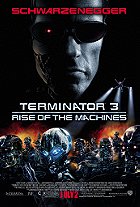
 0 comments,
0 comments, 